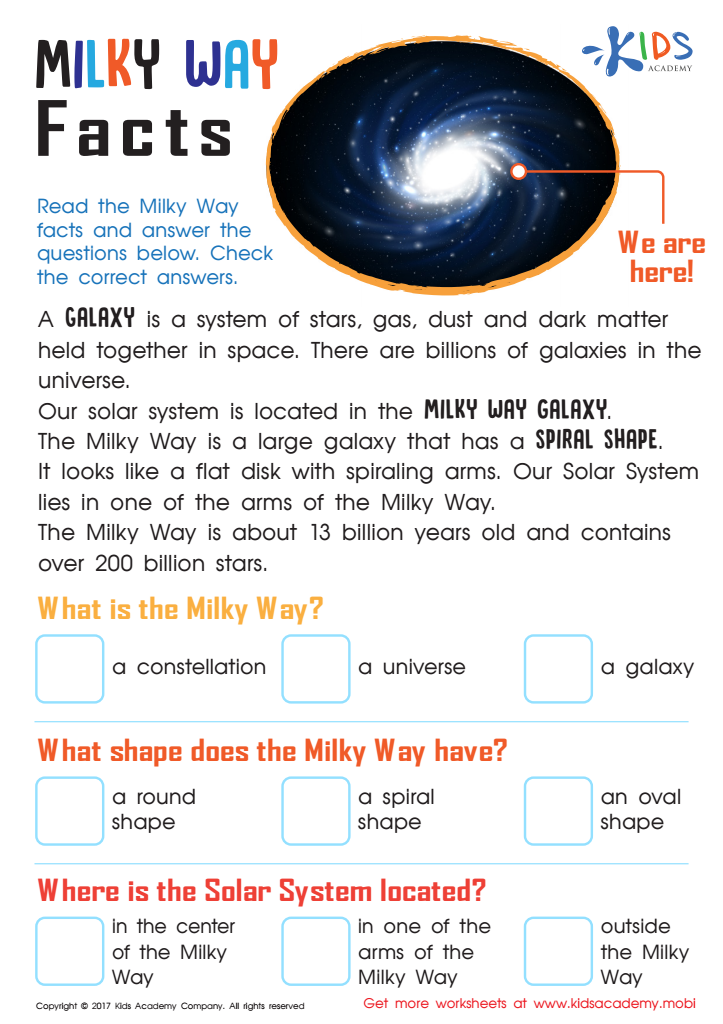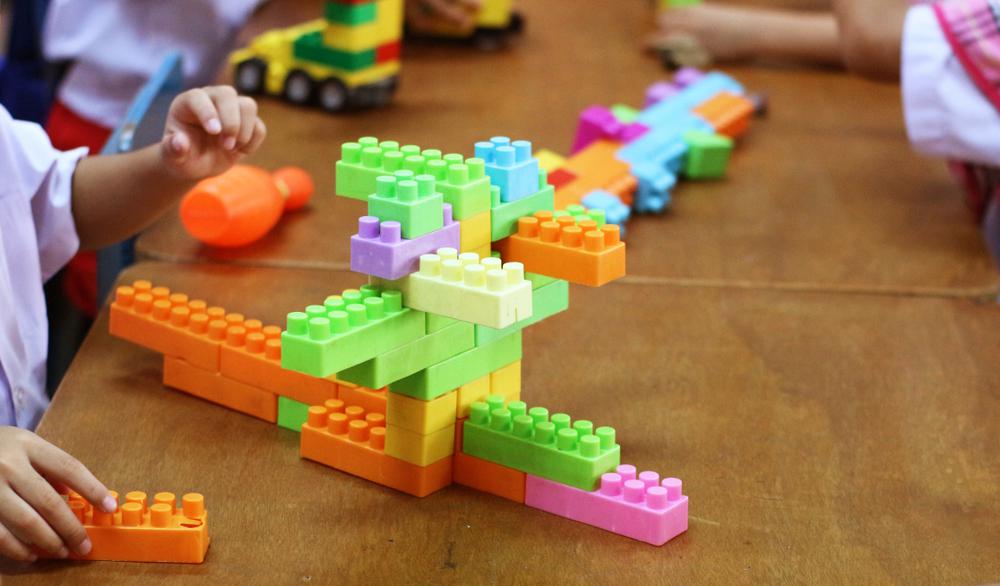Boosting inference abilities Worksheets for Kids
1 filtered results
-
From - To


Milky Way Facts Worksheet
Question/Answer
How to test a Grade 3 student’s Boosting inference abilities skills?
To test a Grade 3 student's boosting inference abilities, present short stories or paragraphs followed by questions that require the student to make logical deductions or predictions not directly stated in the text. Evaluate their ability to use clues from the context to infer character feelings, motives, or outcomes, ensuring the content is age-appropriate and engaging.
What are some effective activities to train students’ Boosting inference abilities skill when teaching them about Space?
To train students' inference abilities in teaching about Space, use activities like analyzing astronomical data to predict planet characteristics, interpreting remote sensing images to infer atmospheric conditions, and engaging in mystery planet role-plays where students use clues to infer details about a planet’s environment, resources, and potential for life.
How to train the Boosting inference abilities skill in Grade 3 students learning about Space?
To train Grade 3 students' boosting inference abilities in learning about Space, engage them in predictive questioning before, during, and after reading space-themed texts or watching videos. Encourage them to make educated guesses about space phenomena based on prior knowledge and clues from the material. Also, incorporate hands-on experiments and simulations to help them draw conclusions and infer scientific concepts.
 Assign to the classroom
Assign to the classroom











